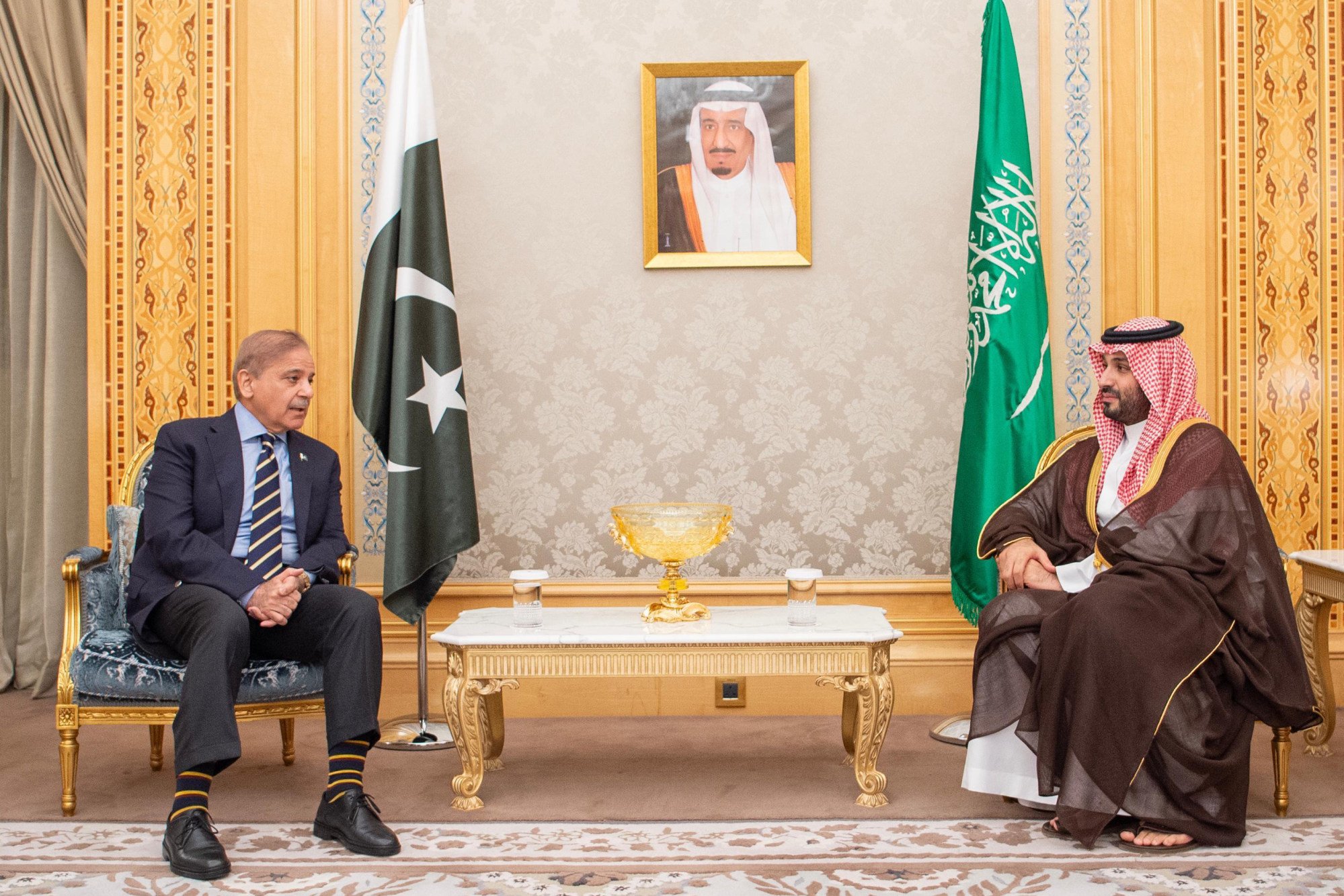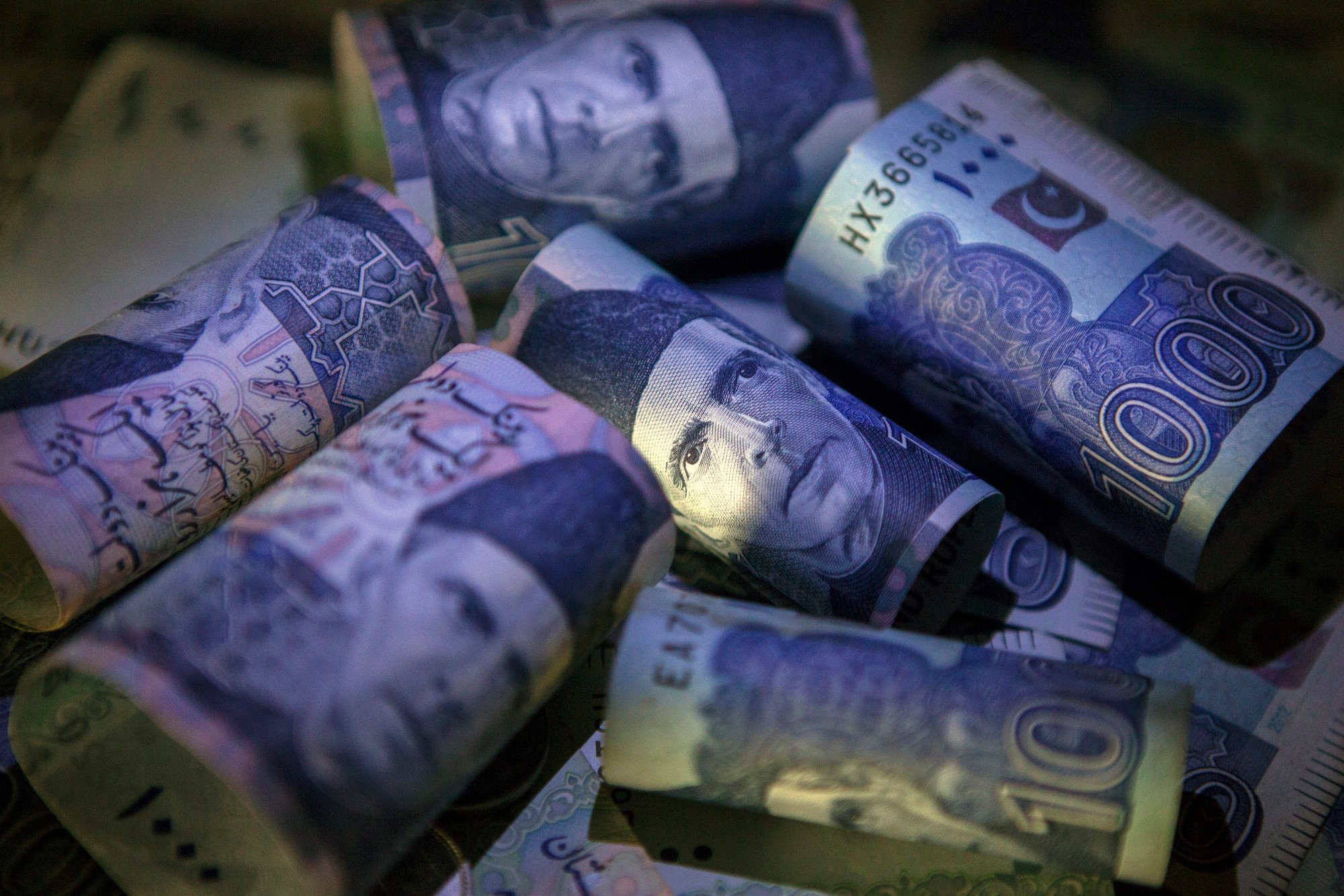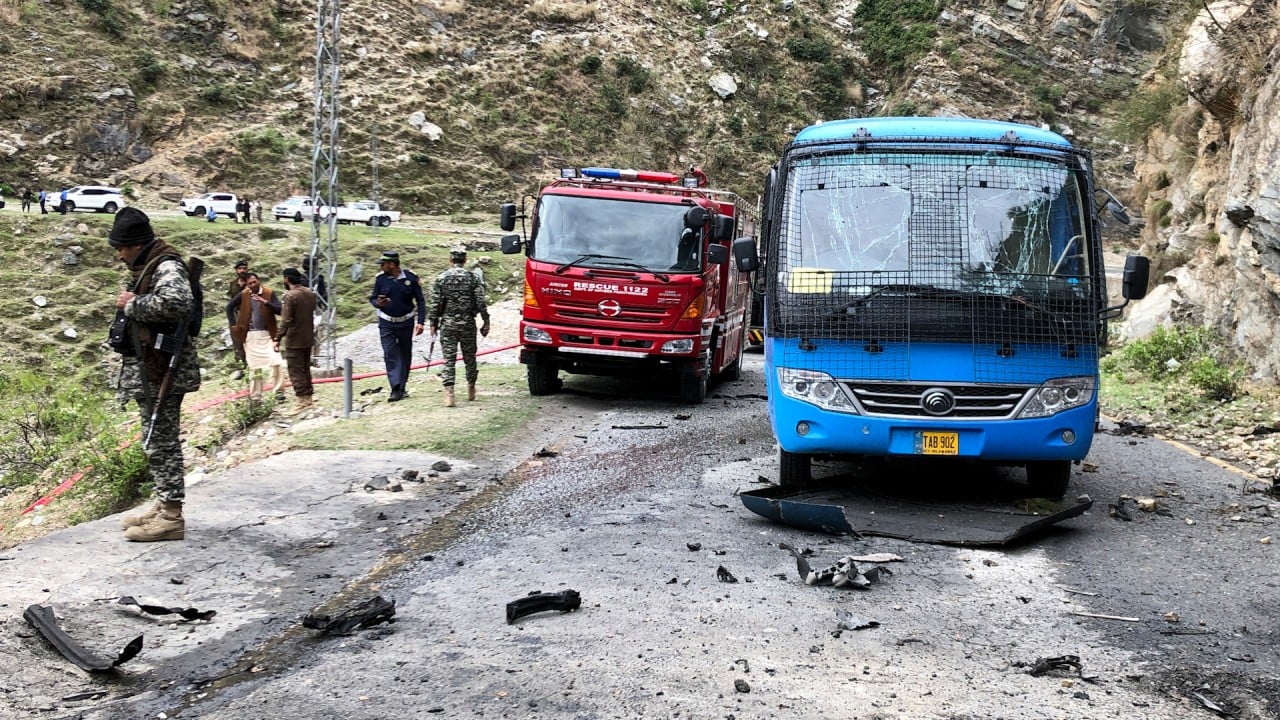“For cash-strapped Pakistan, the commitment of the UAE and Saudi Arabia to invest in its economy comes as a welcome relief, particularly amid ongoing negotiations with the International Monetary Fund for a new bailout package,” said Farwa Aamer, director of South Asia Initiatives at the Asia Society Policy Institute in New York.
Since assuming office in early March after a controversial general election, Shehbaz’s government “proactively pursued high-level engagements” with wealthy Gulf monarchies, notably Saudi Arabia and the UAE, “with a focus on fostering robust collaborations and investments across pivotal sectors”, Aamer said.

The investment came as Pakistan in July last year implemented a series of austerity measures required by the IMF under a one-year US$3 billion emergency bailout programme that helped the country avoid defaulting on its international payments.
The IMF disbursed the final US$1.1 billion tranche to Pakistan on May 1. The two sides also recently held negotiations in Islamabad for a new rescue package worth at least US$6 billion that would be extended for three to four years.
IMF mission leader Nathan Porter described the talks as “fruitful”, saying they would continue via video link over the coming days to reach an agreement ahead of the unveiling of Pakistan’s budget next month for the financial year 2024-25, which begins on July 1.
Pakistan needs foreign currency inflows totalling US$24 billion between July this year and June 2025 to service its external debts of over US$86 billion.

Porter said further discussions would cover the “financial support needed” to underpin the Pakistani authorities’ reform efforts, as called for by the IMF and Pakistan’s bilateral and multilateral partners.
He added the fiscal overhaul was aimed at “moving Pakistan from economic stabilisation to strong, inclusive and resilient growth”.
Close ally China is Pakistan’s biggest creditor and has kept it afloat by refinancing loans worth US$6.5 billion since 2022 and making US$4 billion in central-bank deposits to boost its dwindling foreign-exchange reserves.
Saudi Arabia and the UAE have also parked a combined total of US$4 billion in the State Bank of Pakistan.
The two countries had tightened their terms on financial assistance to Pakistan and other profligate allies like Egypt in recent years, insisting they stick to IMF reforms and offer them viable investment opportunities.
Success for Pakistan will hinge on its ability to effectively address security issues, stabilise its political landscape, and implement crucial economic reforms
The UAE has released US$35 billion to Egypt since February after Cairo agreed to sell it the sleepy Mediterranean coastal town of Ras al-Hikma for commercial development into a modern city and tourist resort.
“For the Gulf countries, these partnerships represent more than just gestures of goodwill; they embody an interest in consolidating their regional foothold amid intricate geopolitical dynamics,” the Asia Society Policy Institute’s Aamer said, adding the Arab states also host a significant number of Pakistani expatriates “whose contributions to their economies are duly acknowledged”.
More than 4 million Pakistanis live and work in the UAE and Saudi Arabia, sending home millions in remittances every year.
Aamer said Pakistan “could inject much-needed liquidity into key sectors of the economy” by actively seeking potential investments from Kuwait and Qatar.
She noted that it was in “Pakistan’s utmost interests” to expand its investor base and financial cushions “beyond China and the IMF reliance”.
Najam Ali, CEO of Karachi-based financial services firm Next Capital, said the “confidence” of Middle East governments and investors in Pakistan had “greatly improved” due to reforms undertaken by Islamabad since last year, pointing to the Special Investment Facilitation Council set up under the stern supervision of the country’s powerful military.
Ali said Islamabad should do a better job of identifying projects to channel their prospective investments and promptly develop them.
“Demonstrations of will by all stakeholders of all the pillars of the [Pakistani] federation” would be key, he added.
Pakistan’s business-friendly coalition government backed by parties with long-standing ties to the UAE and Saudi Arabia also influenced their investment decisions but security threats remain a concern.
“Success for Pakistan will hinge on its ability to effectively address security issues, stabilise its political landscape, and implement crucial economic reforms to ensure the sustainability of these investments,” she said.


